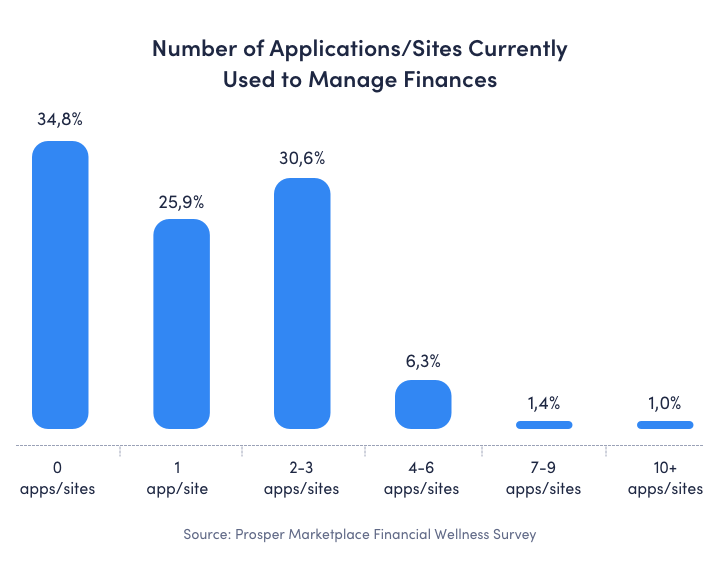FinTech is one of most popular fields in the world at the moment, with thousands of global companies of all shapes and sizes coming up with innovative inventions which allow consumers to engage in financial transactions with never-before-seen levels of speed and convenience. Although banks have a history of being unyielding and set in their way, even the largest government banks have understood the importance of adapting FinTech technologies in their service offerings. A failure to stay on top of changing consumer behaviour could lead to being left behind by more trendier competitors and that's a risk no money-minded bank would be willing to take.

Most banks have been able to successfully adopt FinTech technologies in some way or form. Let’s take a look at some FinTech initiatives that have become commonplace in the world of banking.
Mobile Banking
One of the most successful applications of FinTech technologies, mobile banking has become an integral part of consumers’ daily lives. Most of us use mobile apps or mobile-responsive websites to access our bank accounts and carry out simple to complex transactions (from bank transfers to setting up fixed deposits and standing orders). Especially during the ongoing Covid-19 pandemic, more and more banks are encouraging their customer base to switch entirely to mobile banking, rather than over-the-counter procedures.
Pros of Mobile Banking
- Customers can complete their banking transactions without needing to rely on bank staff or visit the bank office
- Less footfall inside bank offices, allowing staff to attend to only critical tasks
Cons of Mobile Banking
- Poor internet connectivity can hinder transactions
Digital Wallets
Digital wallets like Venmo (and its local counterparts) are a staple of today’s consumers’ lives, both in Sri Lanka and the rest of the world. They allow users to store all their credit and debit cards, as well as passwords, in one location, and manage all their payments from one platform using FinTech technologies such as near-field communications and mobile payment gateways. Due to extensive promotions by digital wallet companies and banks to encourage consumers to adopt e-wallets in their daily transactions, digital wallets have become extremely popular due to the rewards and benefits gleaned by customers. The ease of identity verification and successfully completing transactions make them superior to the mobile apps and mobile-responsive websites provided by banks.
Pros of Digital Wallets
- Facilitates more seamless transactions than native apps offered by banks
- More attractive promotions and special offers
Cons of Digital Wallets
- Security concerns
- Limited adoption by general public
- Dependent on a device
Online Trading
Online trading is another example of service digitalisation that has become extremely popular among the intended target market. Impatient investors who were no longer willing to wait until their stock broker made a desired trade were able to take things into their own hands with online trading platforms. These online trading platforms can be offered either by investment banks or third parties, with an applicable fee. The ease of signing up has encouraged thousands of people to start looking seriously at investing their money.Quicker buying and selling as a stockbroker is not required to carry out the transaction
Pros of Online Trading
- Very easy to sign up and start trading
- 24/7 access to your trading dashboard
- Access to relevant news and updates in one platform
Cons of Online Trading
- Higher risk of getting scammed
- No advise from stockbrokers might lead to riskier trades, leading to lost money
- Has a tendency to be addictive
Online Money Lending

Online money lending is another financial service which has become extremely popular. Quite a few larger banks now offer customers the ability to complete and submit their loan applications online, while some even offer an automated loan facility against pre-existing fixed deposits which can provide instant cash loans. While these services offered by banks still have a long way to go in terms of speed and efficiency, smaller private companies like OnCredit.lk have been able to utilise FinTech technologies to offer unsecured loans to customers in as short a time as one hour. These private FinTech companies have been able to provide a valuable service to a market segment that larger banks have neglected for many years.
Pros of Online Money Lending
- Instant access to money in case of emergency
- Easy application without any loan agent involvement needed
Cons of Online Money Lending
- Higher interest rates for unsecured loans
There is no denying that FinTech technologies have fundamentally changed the way people approach their daily banking transactions. Even the most traditional and orthobox banking systems have been completely overhauled in light of consumers’ banking behaviours having changed as a result of innovations in FinTech. While there is still a long way to go in terms of extreme digitisation of the banking industry (for example, 100% virtual banks are still a dream), we can expect to see great leaps and strides being made on a daily basis. Consumers too need to stay on top of these FinTech innovations offered by banks to avoid being left behind, struggling to use a system they did not accept early on. All things considered, we can definitely expect to see some exciting new innovations soon!







